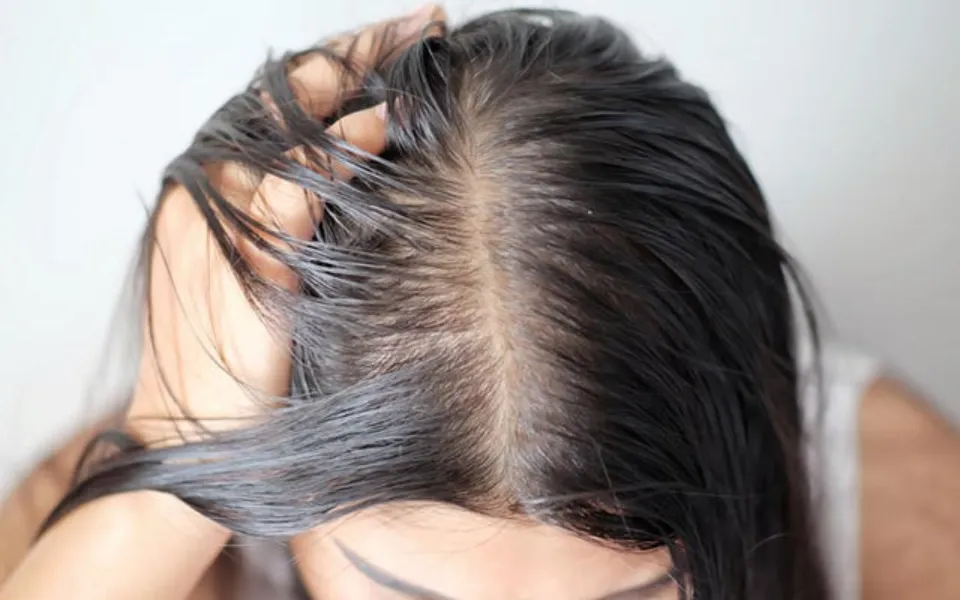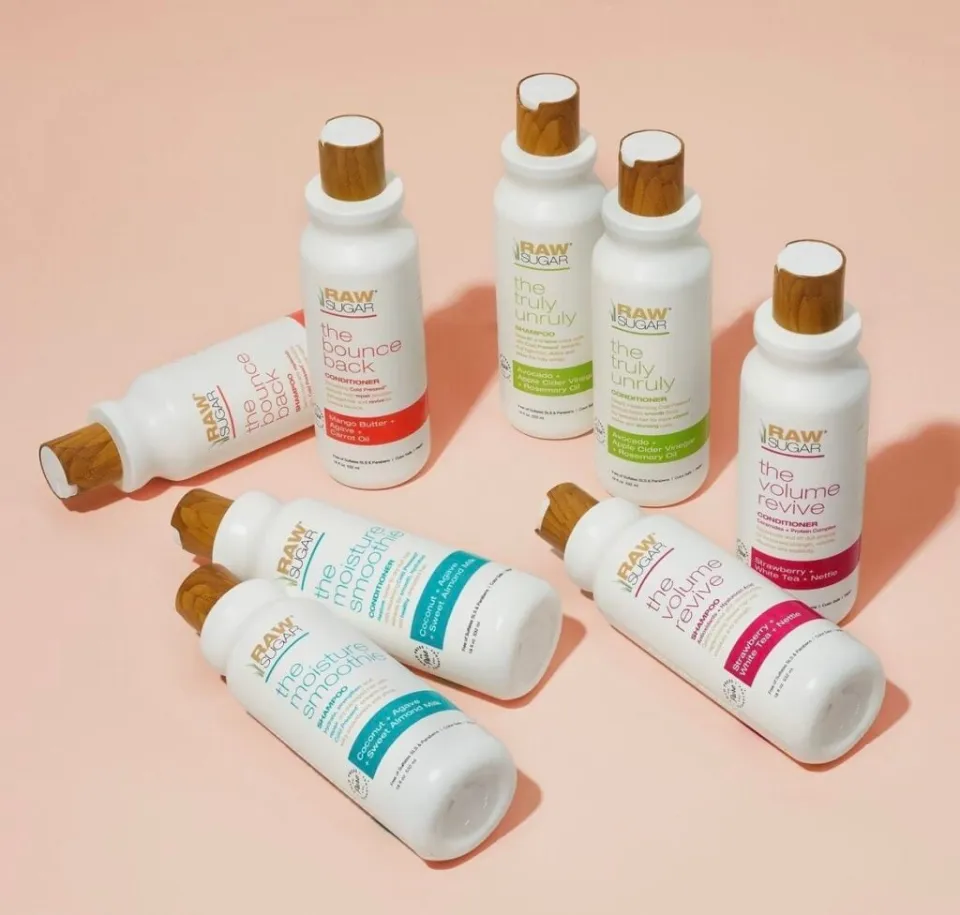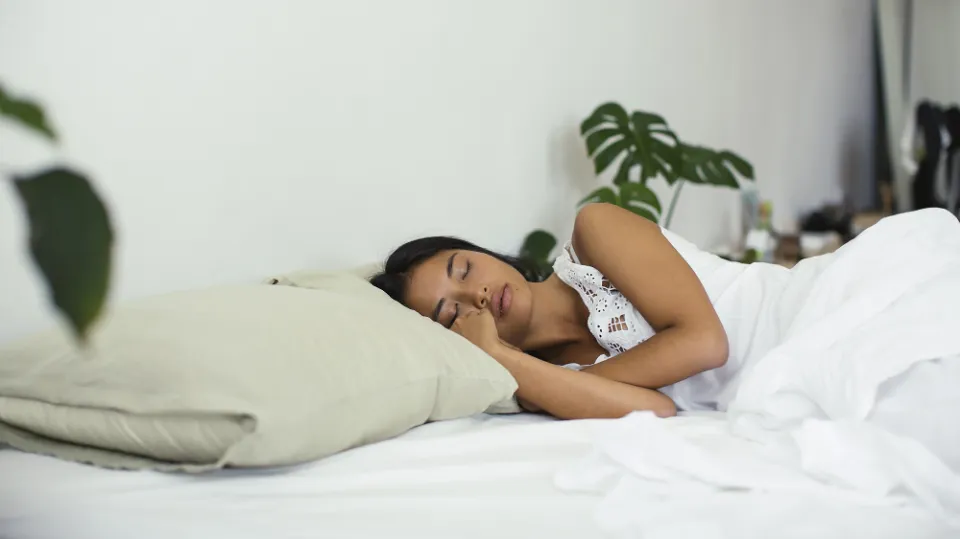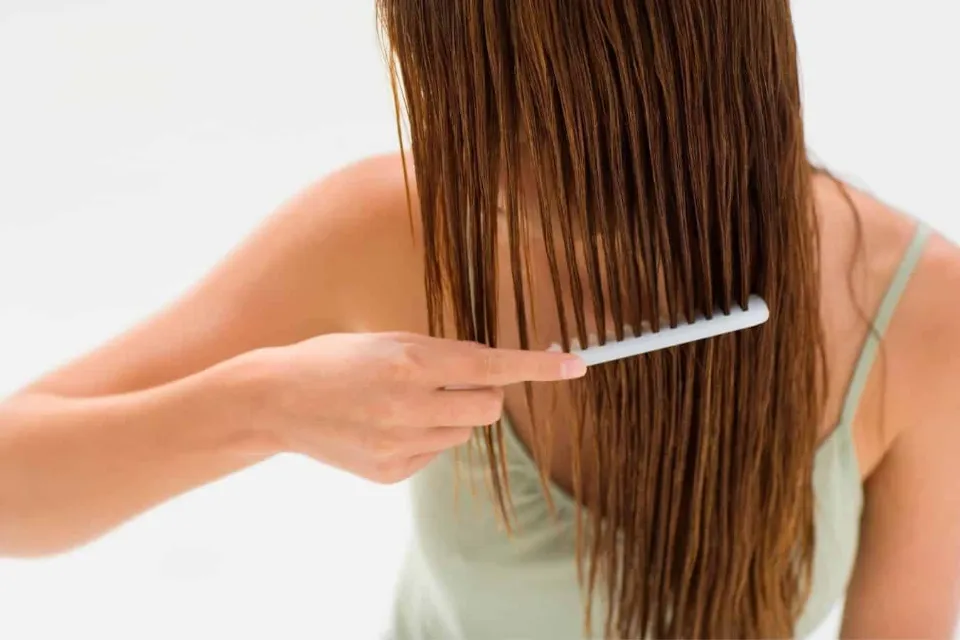Hair that is oily can be difficult to manage. Your hair can become limp and flat after you’ve washed, dried, and styled it. But have you wondered: why is my hair so oily?
Many things can cause greasy hair, from hormonal imbalance to an unclean hairbrush. Oily hair is frequently caused by overwashing your hair, environmental factors, and using certain hair care products.
So, how can you protect your scalp and hair from becoming oily? Remember that the key to finding a solution is understanding why your hair gets greasy in the first place.
Why is My Hair So Oily?
The oil in your hair is a component of your body’s defense mechanism for the delicate scalp hair.
Your scalp and occasionally the top of your head are coated by this oil, which mixes with sweat and dirt. Generally speaking, this is inevitable and normal.
Washing your scalp frequently and thoroughly with shampoo will help you maintain good hair hygiene by removing excess oil and reviving your hair.
However, oil buildup can occur with some hair types. Oil can accumulate to a visible level in less than a day. An oily hair day can occasionally be brought on by strenuous exercise, excessive hair product use, or even just being outside in stifling heat or humidity.
Overwashing
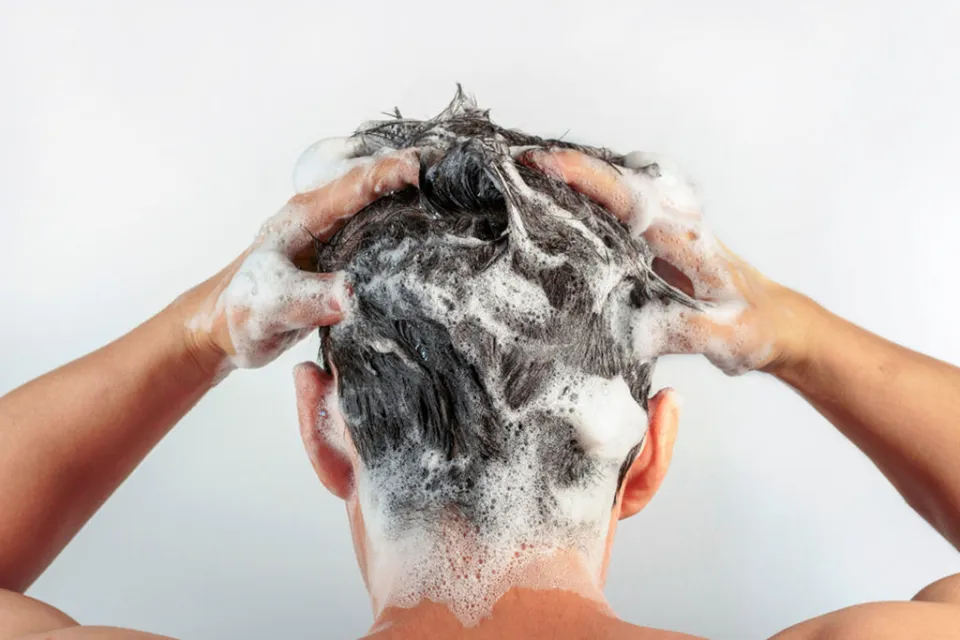
One somewhat unexpected cause of oily hair is overwashing. That’s right, it’s possible to wash your hair too often.
Shampoo instructs the scalp to produce more sebum each time you wash your hair. Your scalp receives the signal to increase oil production if you wash your hair too frequently.
Your scalp may develop an oily buildup as a result.
Related Post:
You Touch Your Hair
Do you ever purposefully or accidentally run your hands through your hair?
By doing this, you spread the oil from your scalp throughout the length of your hair in addition to transferring the oil secreted by your hands to your hair.
Hair Type
Particularly prone to accumulating oil is straight hair.
Consequently, oil slides directly down the hair shaft and gathers all over your head because the hair shaft lacks any texture or wave. When your hair hangs straight down, it also makes the oil in it more noticeable.
Hormonal Imbalances
Sudden hormonal changes can also lead to an increase in sebum production.
Puberty, pregnancy, an increase in stress levels, or menopausei could cause these hormonal fluctuations that have a direct effect on your hair and skin. These hormonal alterations could occasionally be a sign of a hidden medical condition.
Products
Another cause of oily hair is the type of products you use.
Given that sebum is an oil, washing it with water alone will not cause it to disintegrate. Oil can accumulate in your hair if you only rinse it with water, skip the shampoo step, or use only conditioner.
While your hair is drying, it may be difficult to see the oil, but a few hours or so later, it becomes oily once more.
This is so that the oil that accumulates on your hair can be broken down; these ingredients are present in most shampoos.
You Style Your Hair Too Frequently
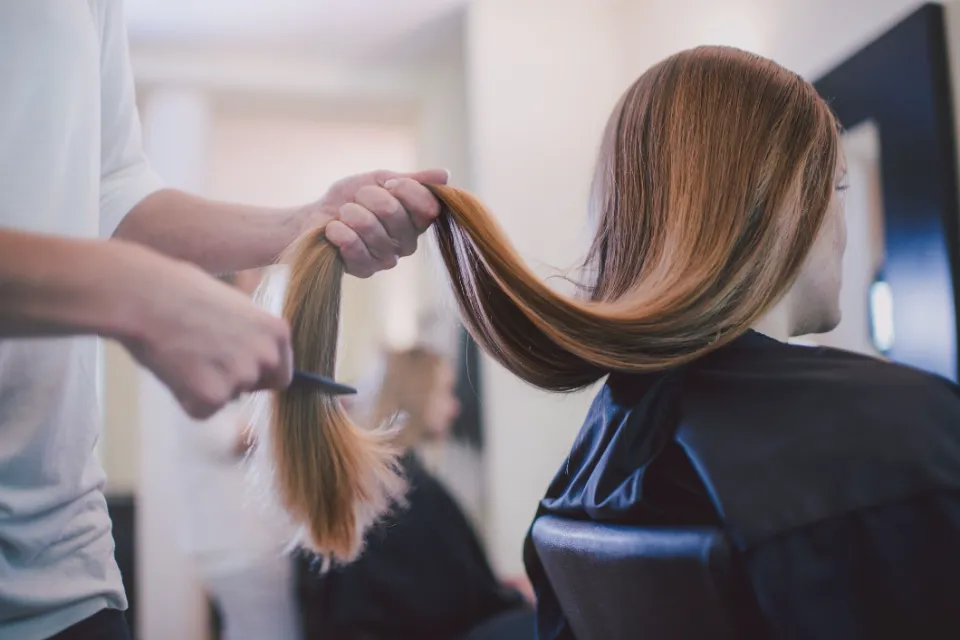
Using gels, creams, curling creams, hair sprays, or hair straighteners daily for heat styling daily,can leave your scalp oily.
You Consume Junk Food
Eating excess oily, fried, or processed foods can stimulate the production of excess sebum. The hormonal imbalances that cause your hair to become oily are also brought on by inadequate nutrient intake.
You Live in a Humid Climate
Sebaceous and sweat glands are frequently overstimulated in humid environments. If you live in a humid climate, your hair may become oily as well, clogging your pores.
You can also harm your hair by getting too much sun.
Dirty Linens
Even if you use the best products, follow a sensible hair care routine, and regularly clean your hairbrush, your hair may still pick up grease from another source—unclean sheets.
Your hair might come into contact with any makeup, sweat, skincare, or hair grease left on your pillowcase from earlier nights when you’re getting ready for bed and want to have a peaceful night’s sleep.
Is Oily Hair Healthy?
Oily hair isn’t healthy or unhealthy by default. Hair that is healthy for the person with an oily scalp may also be dry and brittle. Oil is necessary for the health of your hair, but too much oil can cause buildup on your hair and scalp.
Oily skin may also contribute to a condition called seborrheic dermatitis. Skin flaking and inflammation are symptoms of seborrheic dermatitis, which also makes you itch and inflame your skin.
Malassezia, a fungus that resembles yeast, can cause dandruff on an oily scalp. Your scalp oil is the food source for this fungus.
Regular dandruff can also develop when the scalp is oily and the extra oil starts to irritate the skin, resulting in an itchy scalp, swelling, and skin flakes.
Read More: Why is My Skin Oily?
Oily Hair Treatment
If you’re battling oily hair, there are several things you can do to help reduce excess oils. Aside from taking care of your scalp, oily hair care entails selecting and using the proper products.
Shampooing With Oily Hair
Proper shampooing is one of the best things you can do for oily hair. Try some of these tips:
- Wash your hair more frequently. Every other day or even every day may be necessary to wash oily hair.
- the appropriate shampoo. Purchase an effective shampoo designed for oily hair to help you get rid of excess oil on your scalp and hair strands.
- Make sure to thoroughly rinse your hair to remove any soap residue. Your scalp may become even more inflamed by that buildup, which will also draw more grime and oil.
- Pick out a quality dry shampoo. Dry shampoos remove grease and oil without requiring you to wash your hair. When it’s humid outside, after working out, or in between washes, dry shampoo can help keep your hair from looking greasy. Do not use dry shampoo for more than a few days at a time; instead, shampoo your hair in the shower every few days to avoid buildup and scalp irritation.
Read More: How Often Should You Wash Your Hair?
Conditioning With Oily Hair
Moisture is necessary for even oily hair. Take care to:
- On the ends only; do not use a mild conditioner on the scalp.
- After applying a moisturizing mask to your hair, make sure to thoroughly rinse it out.
- Applying an oil treatment to your hair overnight is not advised.
- Avoid products that make your hair shine if your hair is oily, especially if it is very fine. The resultant weight and oily appearance of the hair may result.
Scalp Care
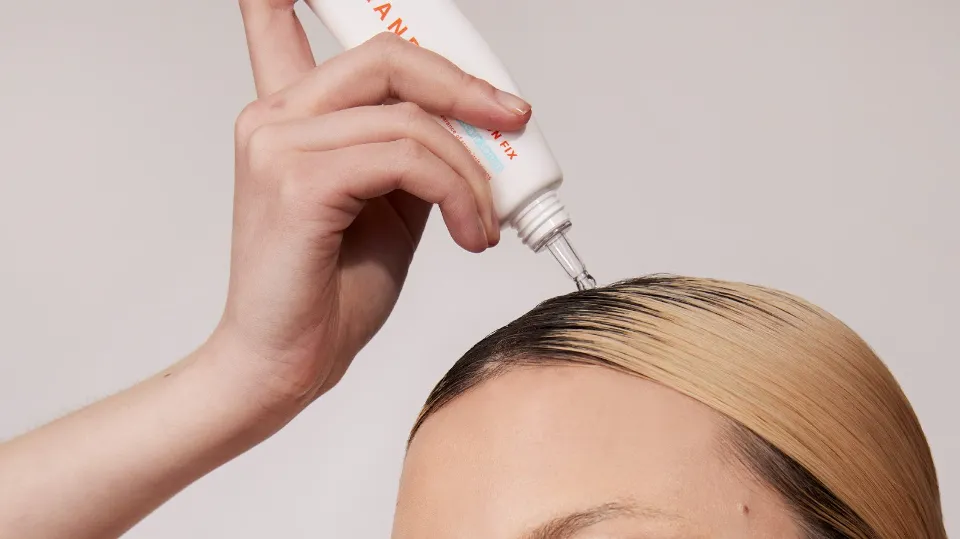
People who have oily hair should pay extra attention to their scalps because they contain oil-producing glands.
The hair follicles may produce more oil when they are overstimulated and become excited. When it comes to scalp care:
- Don’t overbrush your hair. Even though you should only brush your hair when necessary, excessive brushing may encourage the hair follicles to produce more oil.
- Avoid rubbing your scalp abrasively with the towel as you dry your hair.
- When blow-drying, extra oil can be reduced, but too much heat from the hair dryer can irritate the scalp.
- Avoid rubbing or picking at your scalp.
- Pick out your hair products with care. Some ingredients may cause scalp buildup or irritation, which can exacerbate oily hair.
Consult a dermatologist if you’re still dealing with oily hair. They might be able to identify the underlying reason for your oily hair and help you find a solution that works for you.
Conclusion: Why is My Hair So Oily
Some hair types are more prone to oily buildup than others. But there are plenty of home remedies, hair care products, and beauty routine swaps you can do to cut down on how oily your hair appears.
Remember, oil is just part of the way your body protects your scalp, and there’s nothing dirty or wrong about a little oil buildup in your hair.
Consult a dermatologist for advice if your excessive sweating worries you or if your scalp rashes frequently.
FAQs
Why is My Hair So Oily After Washing?
A person’s hair care routine, an excessive production of sebum, environmental factors, or underlying medical conditions can all contribute to grease-filled hair after washing.
Why is My Hair So Frizzy?
Lack of moisture in your hair is the primary cause of frizz.
Is It Healthy to Have Greasy Hair?
Hair that is oily is neither naturally healthy nor unhealthy. Hair that is healthy for the person with an oily scalp may also be dry and brittle.

